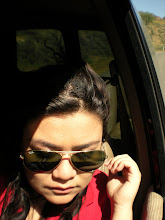For this reason, I decided to post the last unfinished article of Theodore White. He was one of the most accomplished writers in his generation. He was a journalist, essayist and historian. His gift for storytelling was shown when he won the Pulitzer Prize for his novel The Making of the President, 1960. This article named "The American Idea" as put by the American Reader, was written to commemorate the two-hundred-tenth birthday of the United States.
"The idea was there at the very beginning, well before Thomas Jefferson put it into words--and the idea rang the call.
Jefferson himself could not have imagined the reach of his call across the world in time ot come when he wrote:
"We hold these truths to be self-evident, that all men are created equal, that they are endowed by their Creator with certain unalienable rights, that among these are life, liberty and the pursuit of happiness"
But over the next two centuries the call would reach the potato patches of Ireland, the ghettoes of Europe, the paddyfields of China, stirring farmers to leave their lands and townsmen their trades and thus unsettling all traditional civilizations.
It is the call from Thomas Jefferson, embodied in the great statue that looks down the Narrows of New York Harbor, and in the immigrants who answered the call, that we now celebrate.
Some of the first European Americans had come to the new continent to worship God in their own way, others to seek their fortunes. But over a century-and-a-half, the new world changed those Europeans, above all the Englishmen who had come to North America. Neither King nor Court nor church could stretch over the ocean to the wild continent. To survive, the first emigrants had to learn how to govern themselves. But the freedom of the wilderness whetted their appetites for more freedoms. By the time Jefferson drafted his call, men were in the field fighting for those new-learned freedoms, killing and being killed by English soldiers, the best-trained troops in the world, supplied by the world's greatest navy. Only something worth dying for could unite American volunteers and keep them in the field--a stated cause, a flag, a nation they could call their own.
When, on the Fourth of July, 1776, the colonial leaders who had been meeting as a Continental Congress in Philadelphia voted to approve Jefferson's Declaration of Independence, it was not puffed-up rhetoric for them to pledge to each other "our lives, our fortunes and our sacred honor." Unless their new "United States of America" won the war, the Congressmen would be judged traitors as relentlessly as would the irregulars-under-arms in the field. And all knew what English law allowed in the case of a traitor. The victim could be partly strangled; drawn, or disemboweled, while still alive, his entrails then burned and his body quartered.
The new Americans were tough men fighting for a very tough idea. How they won their battles is a story for the schoolbooks, studied by scholars, wrapped in myths by historians and poets.
But what is most important is the story of the idea that made them into a nation, the idea that had an explosive power undreamed of in 1776.
All other nations had come into being among people whose families had lived for time out of mind on the same land where they were born. Englishmen are English, Frenchmen are French. Chinese are Chinese, while their governments come and go; their national states can be torn apart and remade without losing their nationhood. But Americans are a nation born of an idea; not the place, but the idea, created the United States Government."-Excerpts from an unfinished article here entitled "The American Idea" by Theodore H. White. Copyright 1986 by the New York Times





No comments:
Post a Comment